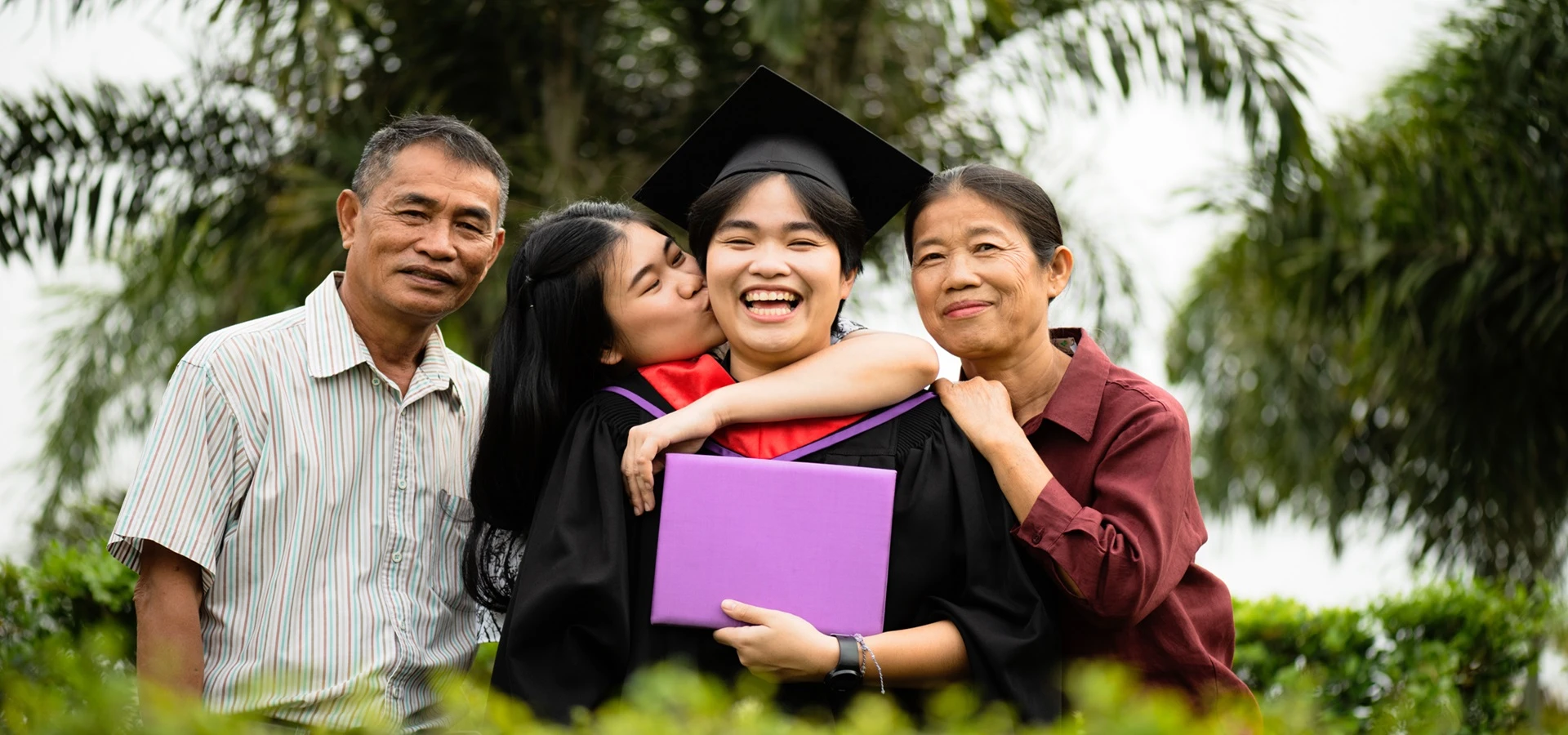
Portugal
From €500,000 + costs
Private Equity Investment
European Residency
EU Schengen Zone Travel
Apply Citizenship 5 years

2 December 2023
In an era of global mobility, residency and citizenship investment programmes have emerged as powerful tools for families seeking to secure a better future for themselves and their children. These programmes provide unique opportunities to enhance educational options, create a lasting legacy, and foster international connections. This guide aims to provide a comprehensive overview of how to leverage Residency and Citizenship Investment Programmes for building a strong family legacy. While the “Plan B” and visa-free travel advantages of Residency and Citizenship by Investment (RCBI) programmes are widely acknowledged, it’s crucial to recognise the often overlooked benefits these programmes bring to families, particularly in the realms of education and future opportunities. Many RCBI programmes extend their benefits across multiple generations, allowing inclusion of the main applicant, spouse, children, parents, and even grandparents in certain cases. Some programmes go a step further, enabling the passing down of citizenship through subsequent generations. Additionally, specific educational incentives are integrated into several programmes, opening up enhanced educational opportunities for families. The ability to move more freely can also broaden education options, a facet that should not be underestimated.
Whether you are applying with young children, adolescent children, or perhaps as a single individual with hopes of starting a family in the future, there is no better time to establish your roots through an RCBI programme. By doing so, you lay the groundwork for a legacy that transcends generations and strategically plan for the future, ensuring a secure and prosperous path ahead.
In the initial stages of a child’s education, Residency and Citizenship by Investment (RCBI) programmes offer a unique opportunity to cultivate a robust foundation for lifelong learning. In numerous countries providing RCBI programs, public education is not only accessible but also free for residents and citizens. While public schools typically instruct in the local language, this presents an advantageous scenario for families with young children. Initiating a child’s education from a young age in the host country allows for a seamless integration into the local language and culture. Public schools in Portugal, Spain and Greece will all conduct teaching in their country’s language, with some English language classes thrown in. Malta is considered a bilingual country so public schools will teach in both Maltese and English. Outside of Europe, the Caribbean is another popular region for English-speaking education options and public schools predominantly follow a curriculum very similar to those in the UK and UK.
For those who may prefer their children to follow an English or UK curriculum, there are numerous highly-regarded international private schools scattered across Europe, catering to the diverse educational needs of expatriate families. Tuition fees will apply in International schools and can vary substantially depending on the establishment, country and the student’s age. By leveraging the educational offerings of the host country or selecting a location with a curriculum that aligns with your aspirations, the pre-school years become a cornerstone for a future enriched by cultural understanding and academic excellence.
Perhaps you would like your children to study at a university abroad. By gaining citizenship or residency through investment in your chosen country, your child will then pay local University fees as opposed to overseas student fees, which will save you a significant amount of money. Two citizenship by investment programmes offering notable University incentives are Grenada and Antigua.
Grenada is home to St George’s University, a private university renowned for its medicine, nursing and veterinary medicine degrees. The university is affiliated with many other educational institutions, including the UK, USA, Canada and Australia, attracting students and faculty members from all over the world. The best bit is that, through the CBI programme, Grenadian Citizens receive a 90% Grenada Partnership Award which means they only need to pay 10% of tuition fees for the university’s undergraduate programmes. This is a significant saving. To qualify, citizens must have resided in Grenada for 1 year prior to registration. A gap year before university could well qualify the student. It is also worth considering Antigua’s Citizenship by Donation programme. The University of the West Indies Fund is an alternative donation route which is open to larger families of six members or more. Families of six can make a contribution to this fund from £150,000, plus fees. The fund provides crucial financing of the Universities fourth campus. Participation in this programme will entitle one member of the family to a one-year, tuition-only, scholarship at The University of the West Indies. Applicants will have a five-year period to utilise the scholarship, which is great if your child is not yet of university age but you wish to begin the citizenship process.
Whatever RCBI programme you decide on, even if you do not relocate or educate your children in the chosen country, your family can still benefit from exposure to different languages and cultures as a part-time resident, giving them a more international outlook as they grow up. Perhaps your main incentive is to enhance your family’s visa-free travel options, spending your annual vacations in countries that you would not ordinarily have access to using your current passport and creating new experiences for your family.
Education is undoubtedly essential, but when it comes to ensuring your family’s financial stability, it goes beyond academia. One critical aspect is prioritising wealth protection and diversification. An effective strategy involves capitalising on residency or citizenship options to diversify assets, mitigating risk and fortifying financial security. If you reside in a country facing political volatility or economic stagnation, it’s prudent to avoid concentrating all your assets domestically. Instead, consider diversifying across countries with more stable economies and greater growth potential. Additionally, exploring investments aligned with your long-term financial goals contributes to cultivating a well-rounded and resilient portfolio.
Comprehensive estate planning is another integral facet of securing your family’s future. Navigating this process requires a deep understanding of the legal and tax implications associated with your chosen residency or citizenship programme. Seeking expert tax guidance is crucial for crafting a robust estate plan that addresses wealth distribution and succession. Notably, countries like St Kitts, St Lucia, and Antigua, do not impose capital gains, wealth tax or inheritance tax, which is a significant consideration for forward-looking planning.
Residency and Citizenship by Investment (RCBI) programmes also offer an excellent avenue for building and enhancing your own business and career prospects. Better access to international business connections and new opportunities will no doubt yield great benefits for both you and your entire family. Another factor to consider is the careers of your loved ones. Suppose you have adult children embarking on their careers who aspire to work abroad. Many RCBI programmes, such as those in Portugal or Spain, enable the applicants to work in the chosen country without the need for a separate work visa or sponsorship. This not only broadens career horizons but also contributes to a wealth of international experiences for the entire family.
Another consideration should be your family’s future legacy. Many RCBI programmes allow citizenship to be passed down to future generations. What a great prospect to know that you have not only given your immediate family the gift of a second passport but future generations will benefit for decades to come. St Kitts, Dominica, Antigua, Portugal, Spain and Malta, all enable you to pass citizenship down to new generations. This enduring legacy provides a foundation for continued growth, prosperity, and international opportunities, ensuring that your family’s impact transcends the present moment.
Participating in a Residency and Citizenship Investment Programme is a strategic decision that can have a profound impact on your family’s legacy. By choosing the right programme, making informed investments, and prioritising educational opportunities, you can create a foundation for a brighter future for your children and generations to come. Remember to seek professional advice from La Vida’s expert advisors throughout the process to ensure a smooth and successful journey.
Tags: Golden Visa Guides, Grenada, Malta